15 Best Vegetables and Fruits to Build Muscles

Building muscle is important for many reasons—for example, it helps support bone health, burns fat, and encourages independence as we age. "Weight training is the best way to keep the muscle mass you have and even increase muscle mass you may have lost with aging," physical therapist Shawn Pedicini tells Harvard Health. "Don't forget to consistently challenge yourself as you progress. It's necessary to gain the muscle and strength changes you want and need." Here are 15 fruits and vegetables that help burn fat and build muscle.
Bananas
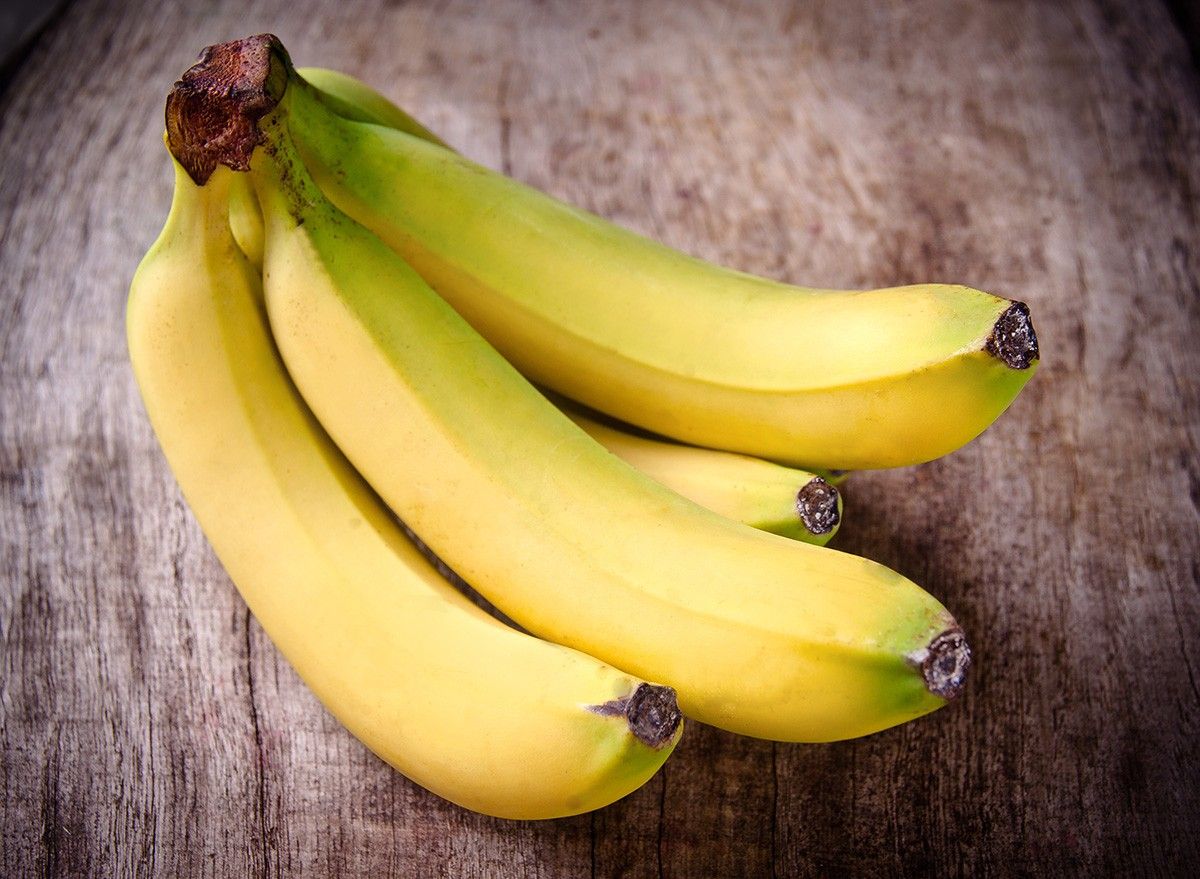
Rich in carbs and potassium, bananas are a healthy, convenient snack to fuel your workout. "A medium banana offers about 105 calories, which provides fruits' natural sugar, as well as 3 grams of fiber (A quick rule of thumb is that one serving of carbohydrates should provide at least 3 grams of fiber)," says Penn Medicine.
Watermelon
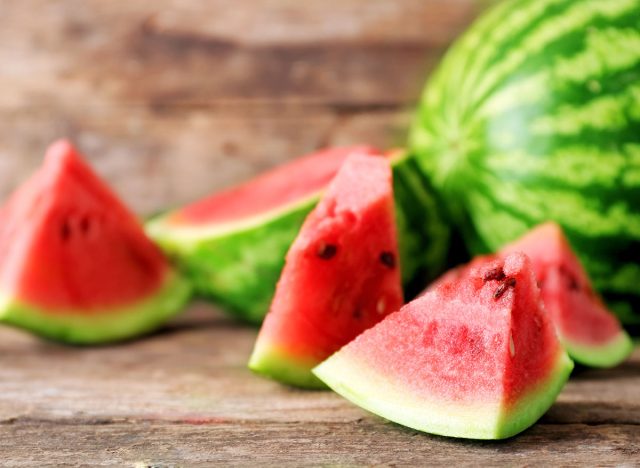
Watermelon is not only delicious but can also aid in muscle recovery. "If you exercise outdoors, eating some juicy watermelon before or after your workout will aid in hydration and help provide energy," Natalie Rizzo, RD, tells NBC News. "It also contains potassium, an important electrolyte lost in sweat."
Dates
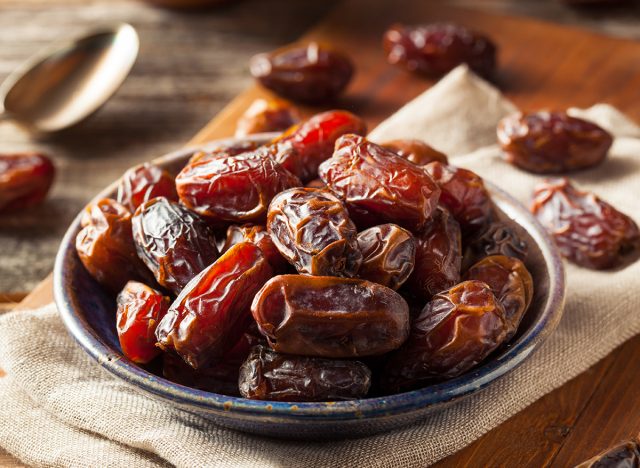
Dates are convenient, easy to store, and a great way to fuel your muscle-building workouts.
"High in carbohydrates, potassium, and other minerals, dates are a solid fuel for performance and recovery," Katie Kissane, RD, CSSD, tells Men's Journal. "Dates are a great natural sweetener to add to low-sugar smoothies, energy bars, or even to sweeten oatmeal."
RELATED: I Lost 35 Pounds With Intermittent Fasting and Here's How
Strawberries
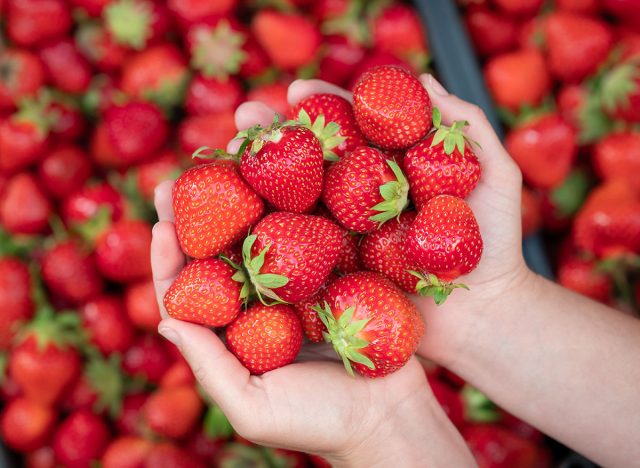
Strawberries are low in sugar and a great post-workout snack. "Strawberries are also very low in calories and fat, making them a great food choice if you're trying to lose weight," says the American Sports and Fitness Association. "Strawberries are a delicious and healthy fruit you should eat more often. They contain many essential nutrients like vitamin C, manganese, and folic acid, which help keep your body strong and protect against disease."
Sweet Potatoes
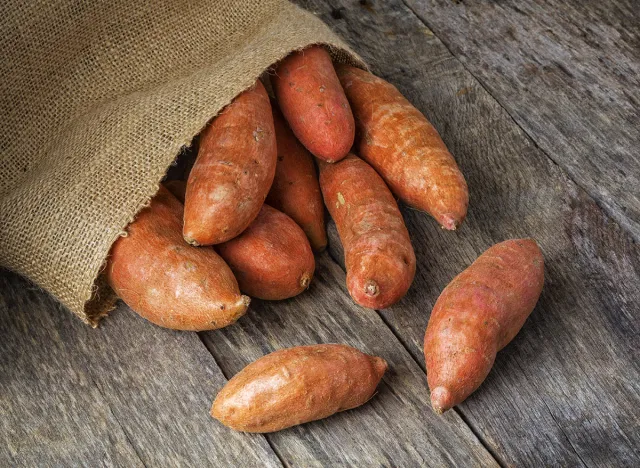
Save your sweet potatoes for after your strength-building workout. "Eating a sweet potato post-workout is ideal as they contain copper, which can help maintain healthy muscle tissue and replenish energy levels," nutritionist David Wiener from fitness app Freeletics tells Harper's Bazaar. "Sweet potatoes also contain vitamin C, which helps to prevent muscle catabolism (the breakdown of muscle tissue)."
Spinach
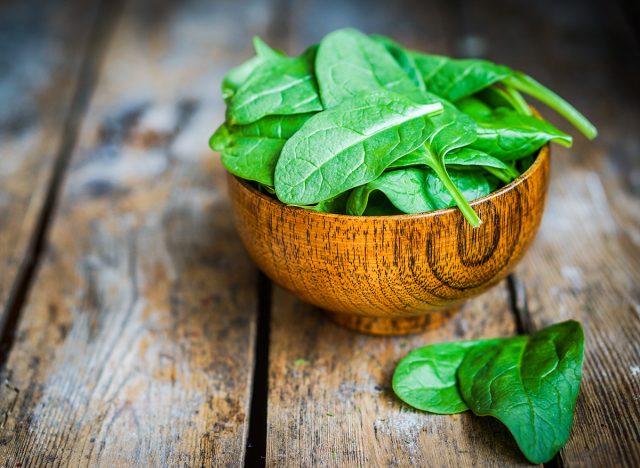
Spinach contains nitrates, which are linked to improved muscle endurance. "More research is being done now to determine if increased nitrate in muscle translates to increased muscle strength and improved athletic performance," Norman Hord, chair of the University of Oklahoma's Department of Nutritional Sciences, tells CNN.
Beets
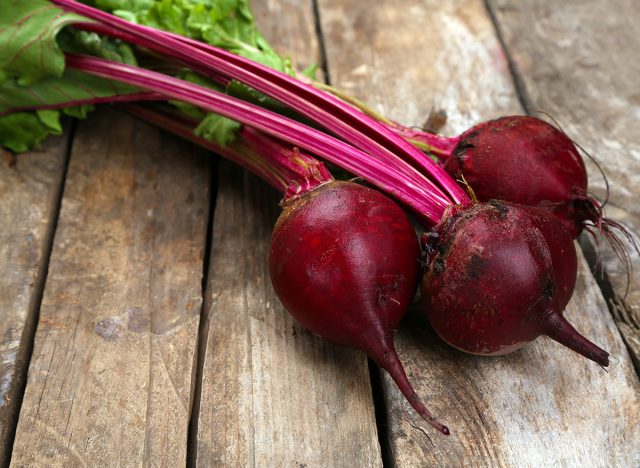
Beet powder is rich in nitrate, which positively impacts workouts. "Nitric oxide relaxes and expands your blood vessels, which allows for increased blood flow and more oxygen delivered throughout your body," Carly Sedlacek, RDN, LD, tells the Cleveland Clinic. "In athletic terms, that can help you perform better for longer."
Peas
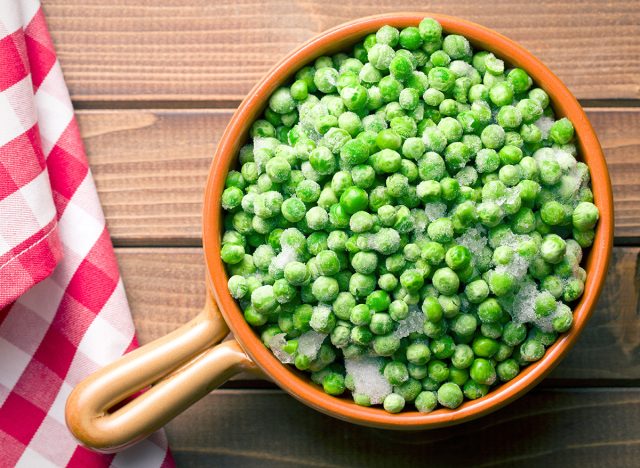
Peas are an excellent source of plant-based protein. "Exercise triggers the breakdown of muscle protein, especially those exercises that include resistance training," Natasha Trentacosta, MD, tells Cedars-Sinai. "High-quality protein sources like milk, eggs, soy, wheat, and peas can help restore and recover."
RELATED: This Is Exactly How to Lose Body Fat This Year
Lentils
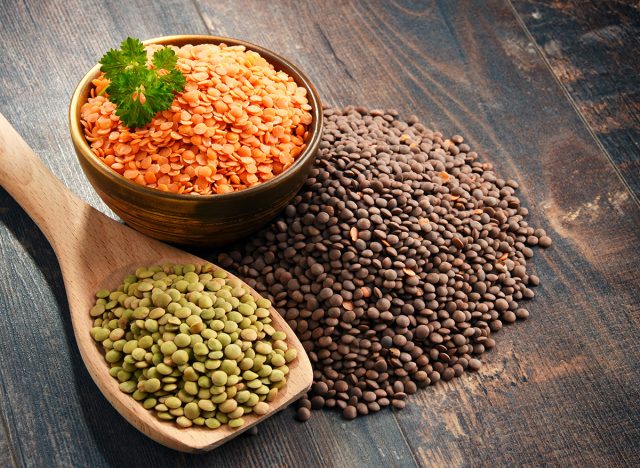
Lentils are rich in fiber and protein, which is important for fat-burning and muscle-building. "One cup contains about 18 grams of protein–more than other legumes like chickpeas or black beans!" says the American Sports & Fitness Association.
Broccoli
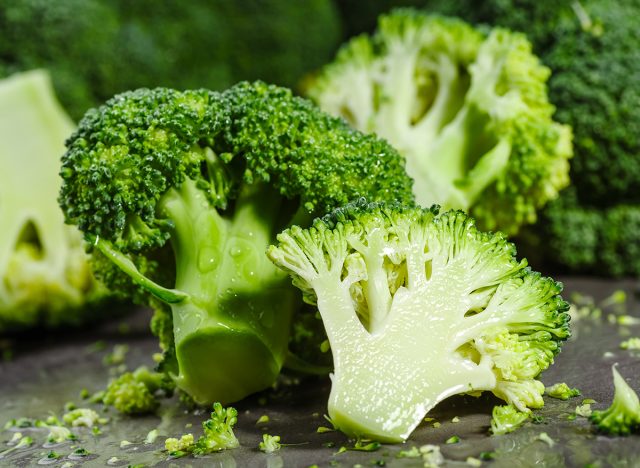
Broccoli is full of vitamin C, which makes it ideal to aid in post-workout recovery. "Broccoli has as much vitamin C as an orange," Megan Holdaway, RDN, tells Let's Eat Healthy. "Vitamin C builds collagen, which forms body tissue and bone and helps heal cuts and wounds. It is a powerful antioxidant and protects the body from damage by free radicals."
Garlic
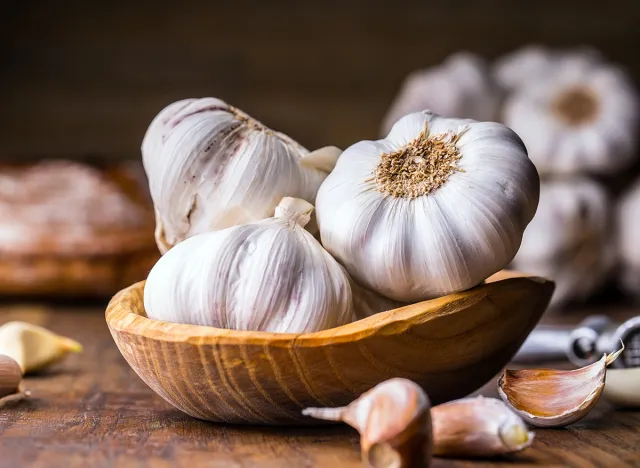
Garlic is helpful for muscle-building. "The stinking rose, as garlic is often called, has in fact been shown to raise testosterone levels, a key hormone in muscle growth and strength," Jim Stoppani, PhD, tells Muscle & Fitness. "Garlic has an interesting additional benefit, it has been shown to lower cortisol levels."
Avocados
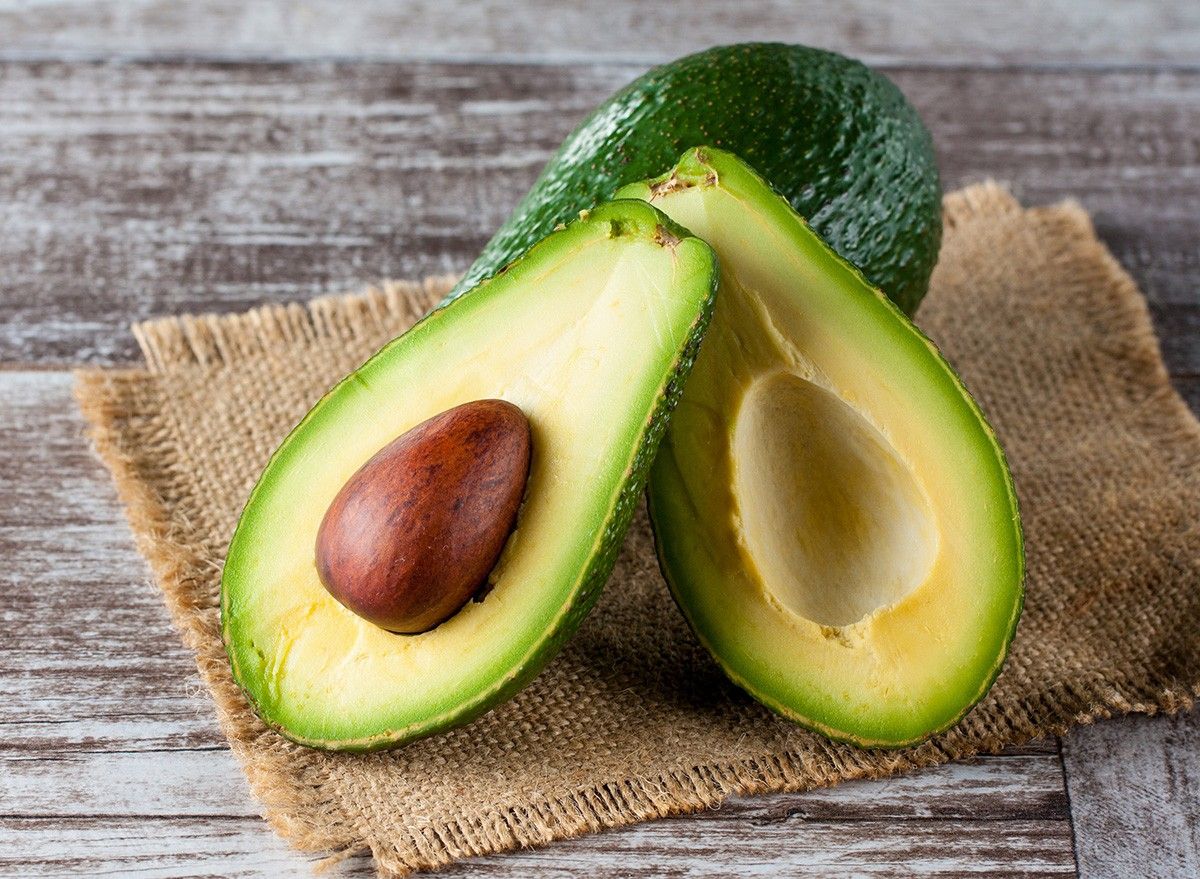
Avocados are the ideal post-workout food high in potassium and magnesium. "Not getting enough magnesium can impair exercise performance and can increase the effects of oxidative stress from strenuous training," Yasi Ansari, MS, RDN, CSSD, tells Runner's World.
RELATED: 20 Simple Tricks to Lose Weight by Walking
Blueberries
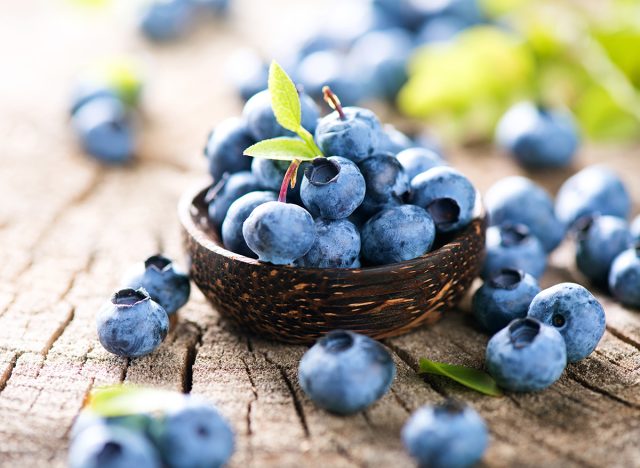
"Blueberries are a great complex carbohydrate which can provide the body with energy for workouts" Wiener says. "Complex carbs are important, as they digest slowly, staying in your system for longer, resulting in sustained energy and endurance. In addition, blueberries contain high amounts of water, which help to keep you hydrated during exercise."
Coconut
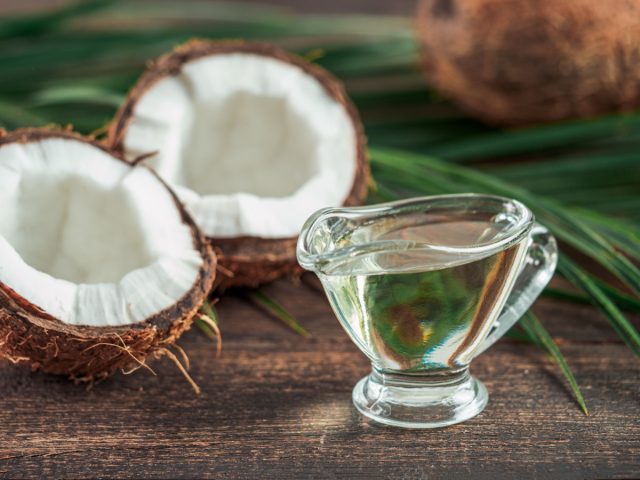
Coconut water is a great way to hydrate post-workout. "If the exercise session has lasted an hour or less, then water is all you need to replenish," Dr. Trentacosta says. "If the workout was longer than an hour, however, then an option like coconut water can help you to replace the electrolytes that were lost while sweating through a long exercise session."
Beans
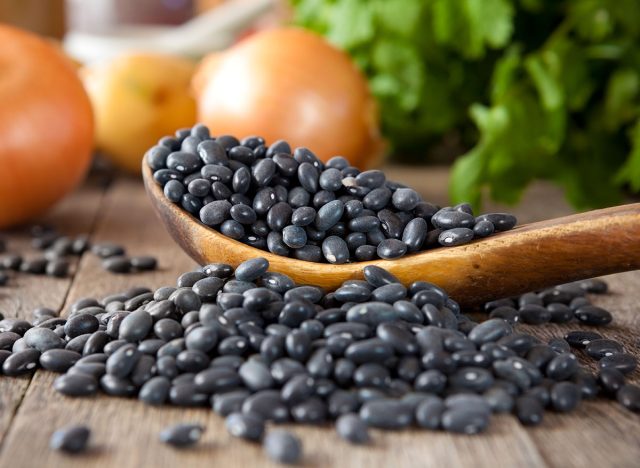
Beans are a great source of plant-based protein. "Foods rich in fiber and protein (like beans!) keep you satiated and help build lean muscle mass," says Piedmont Health. "Lean muscle mass helps you burn more calories even when you're at rest."
💪🔥Body Booster: Use peas in your post-workout meals for optimal muscle recovery. They are excellent plant-based protein sources that can help rebuild muscles after resistance training sessions.




